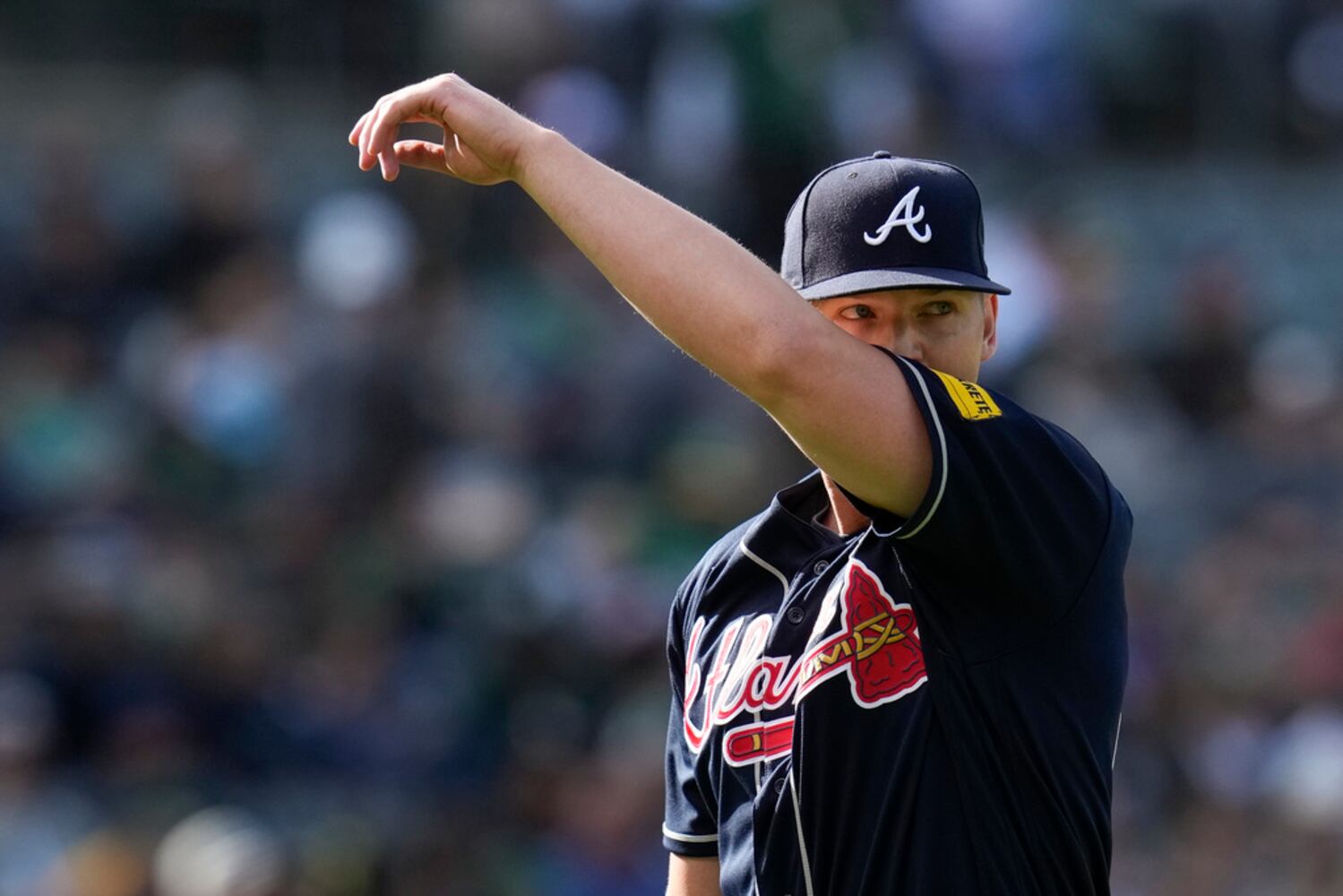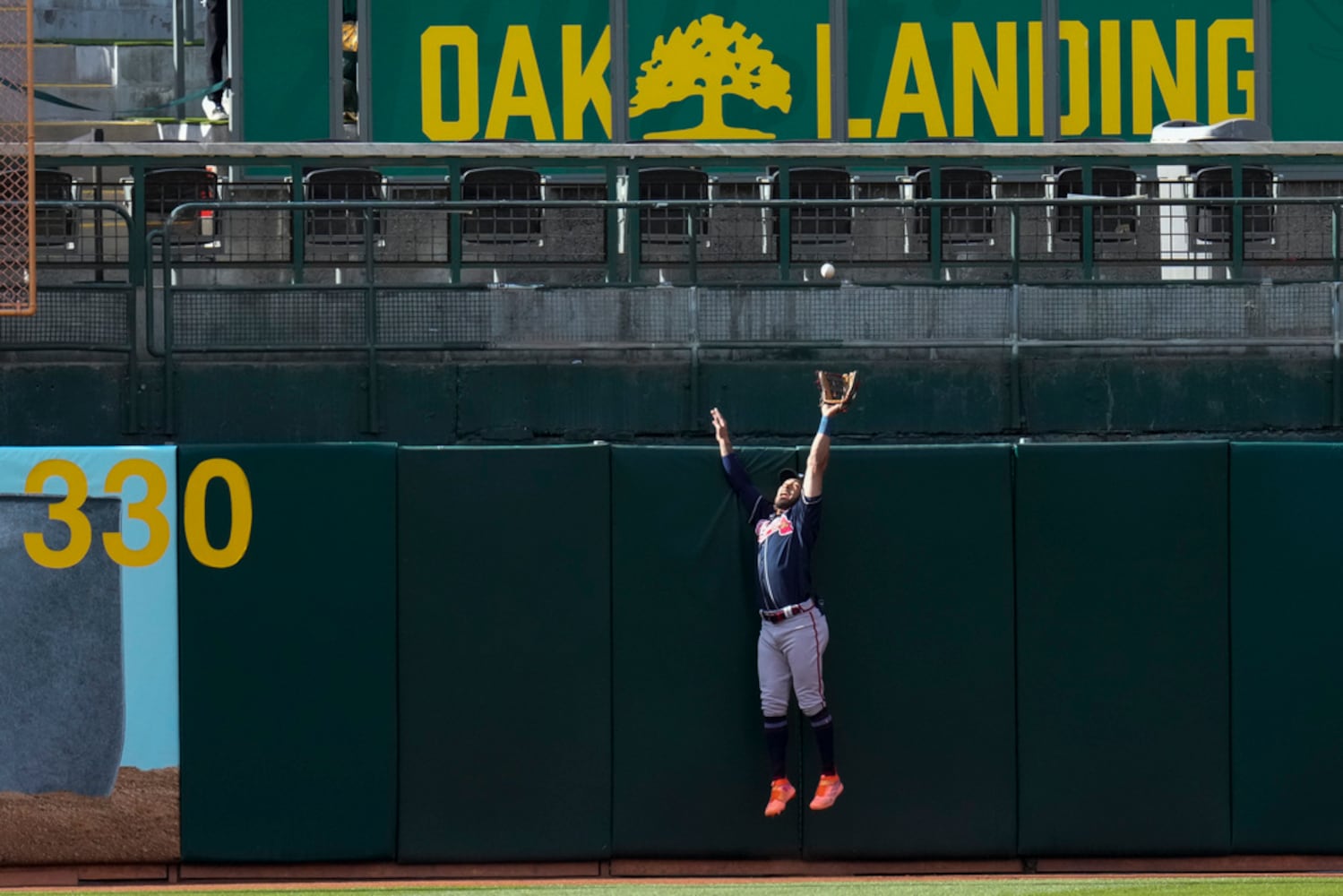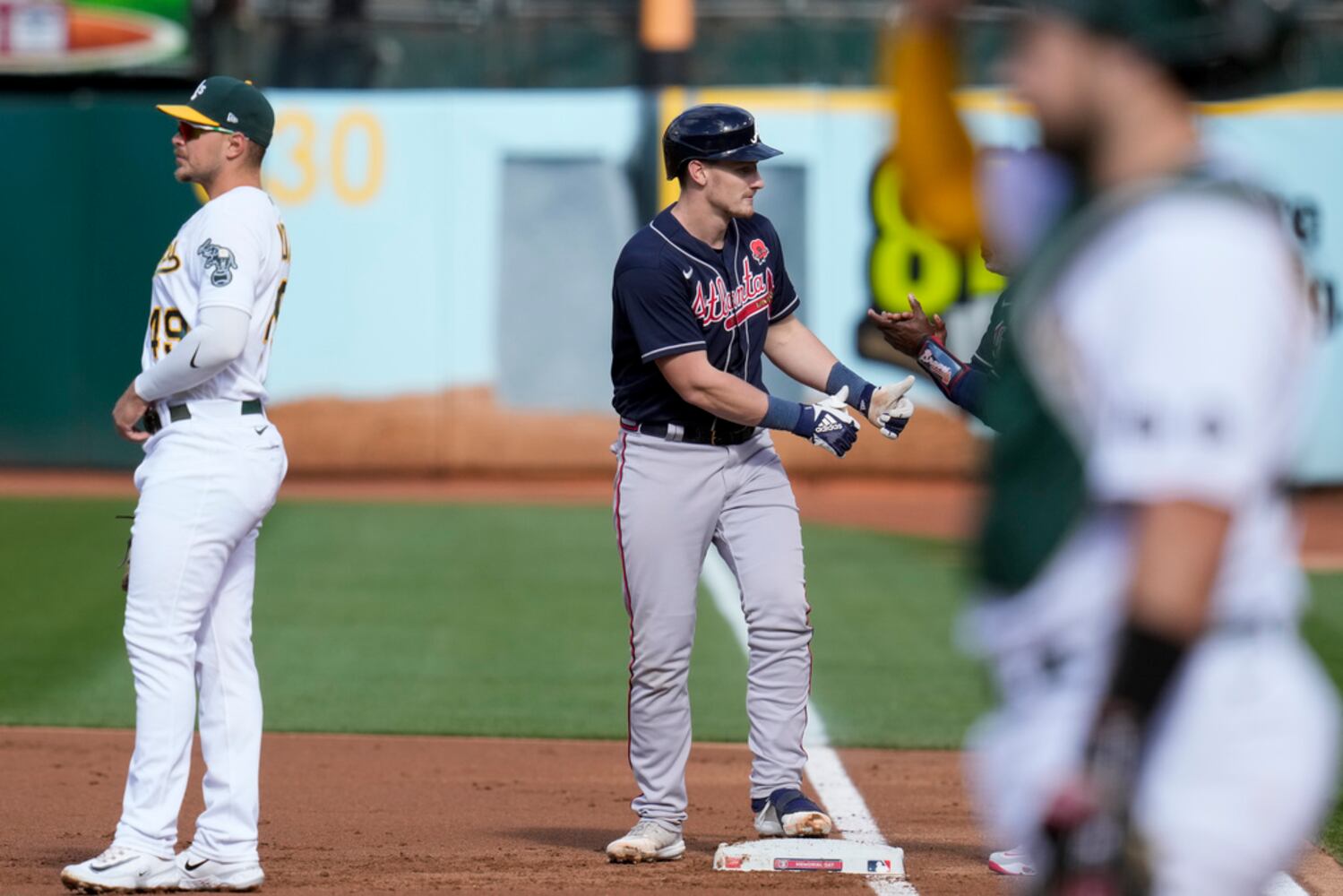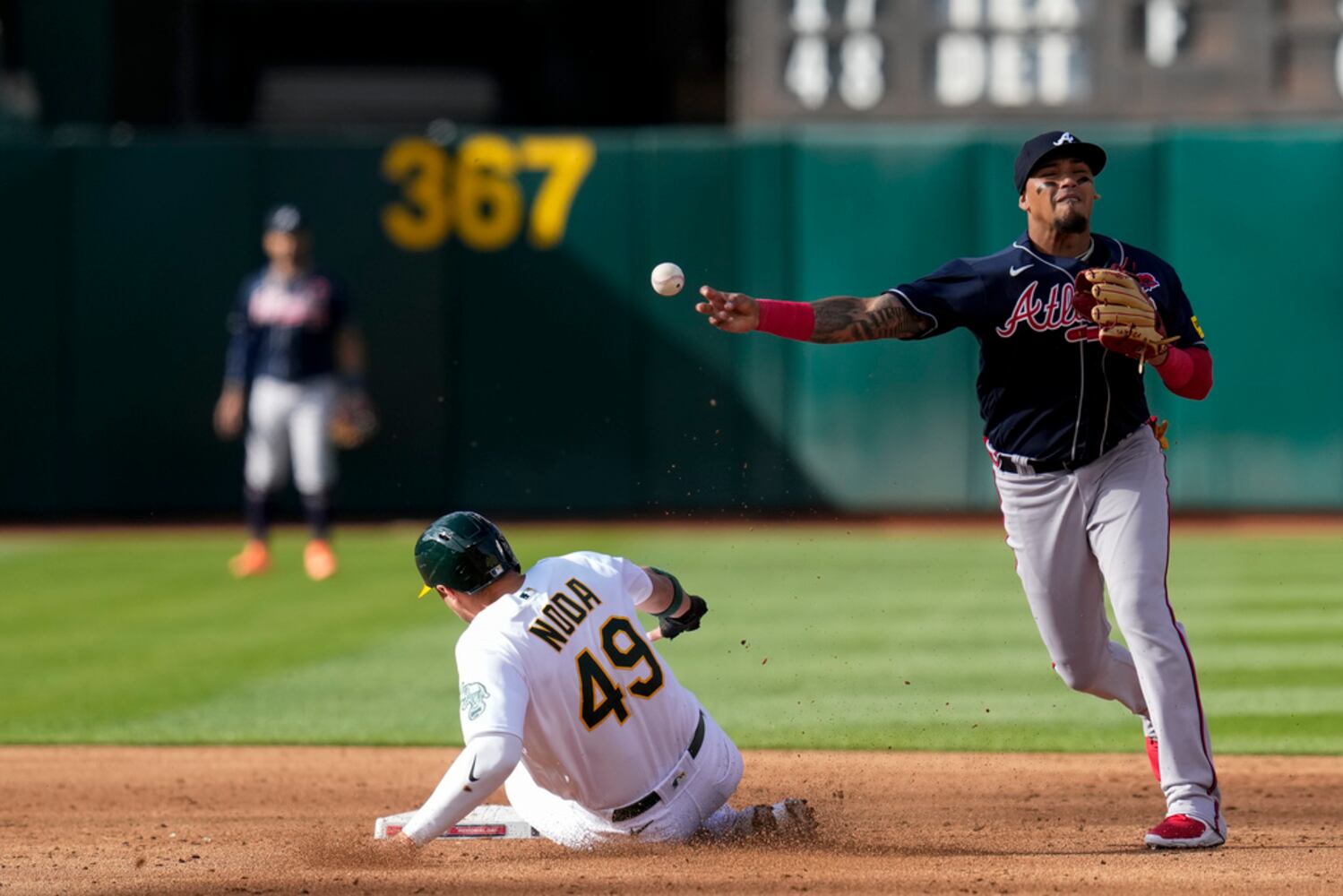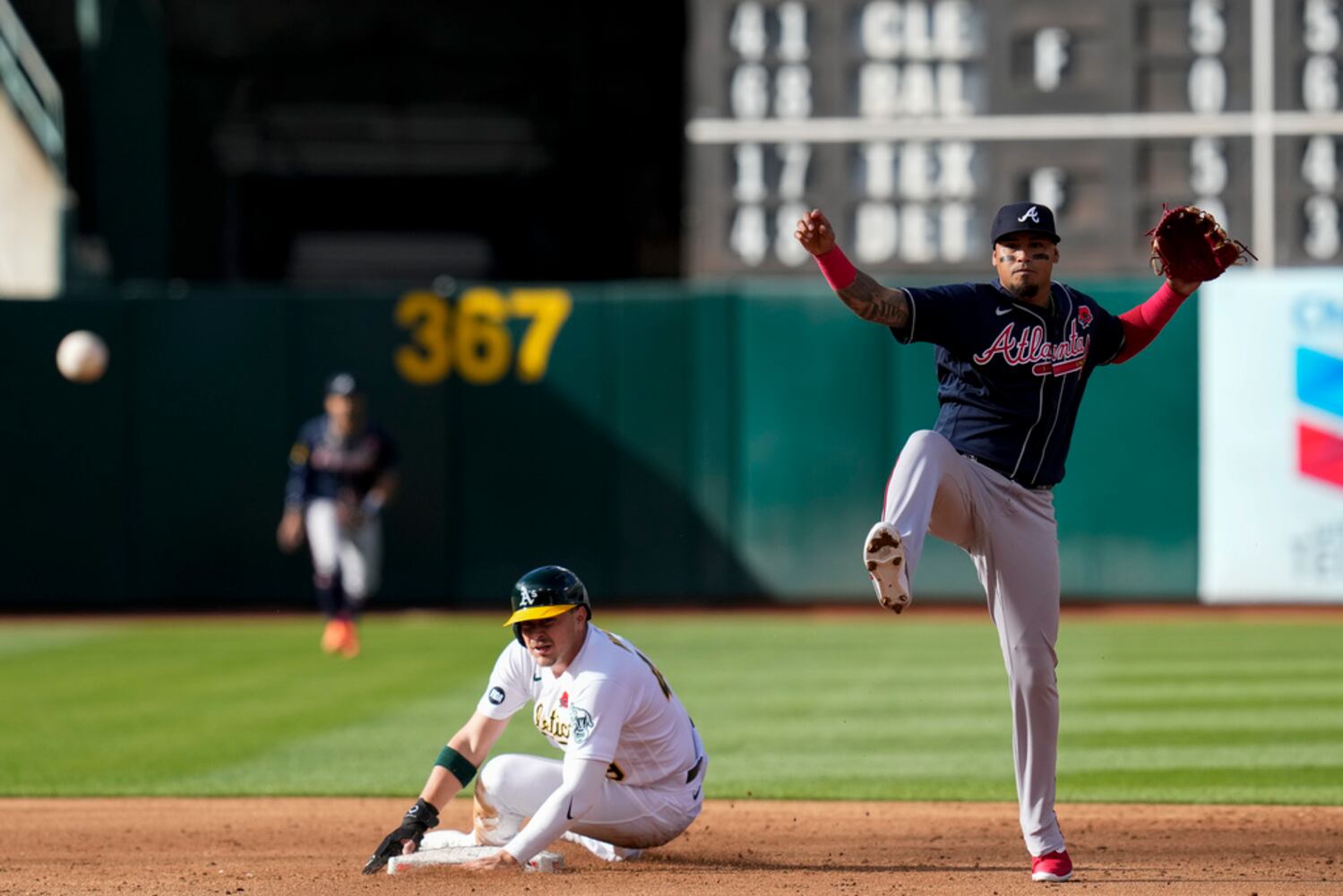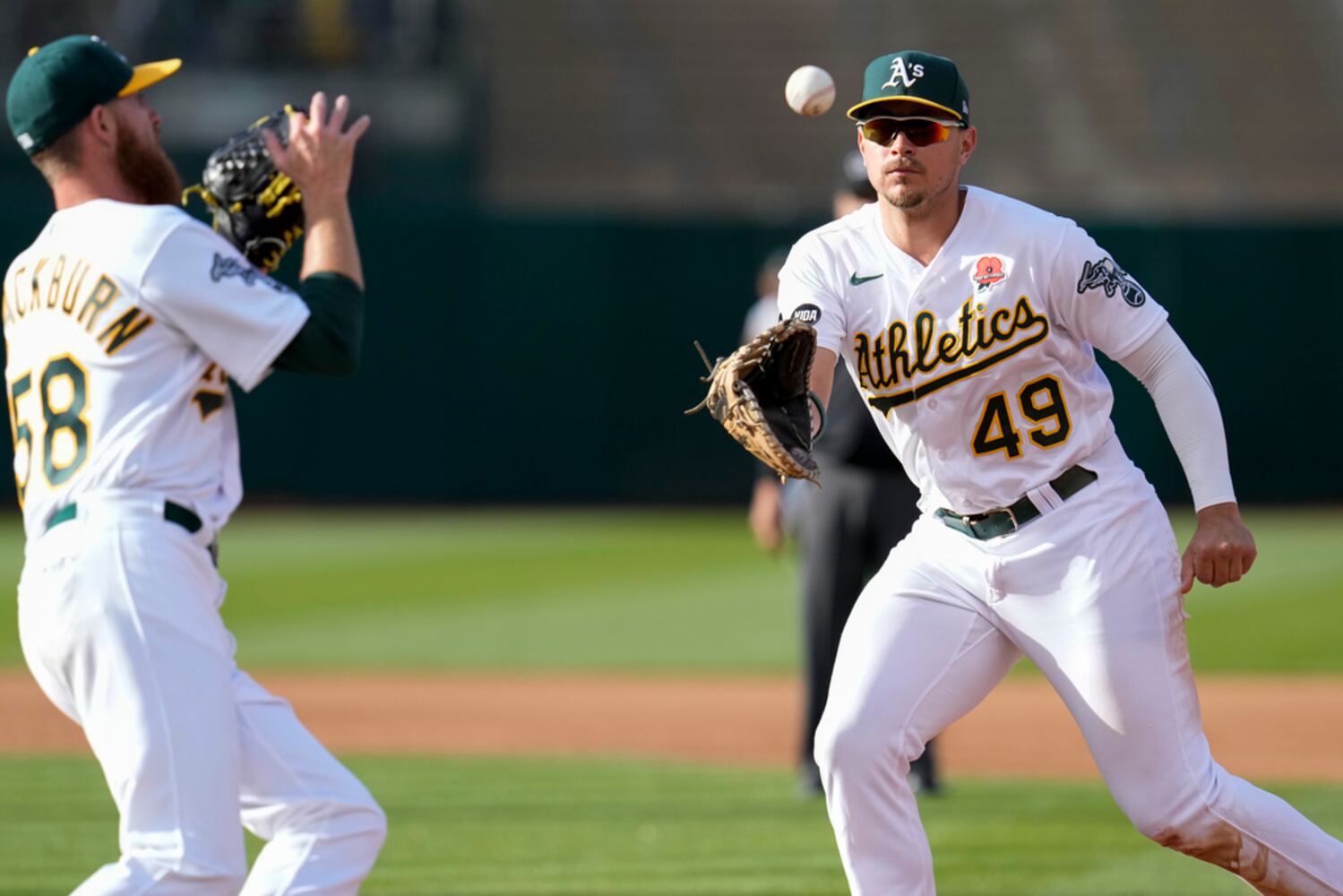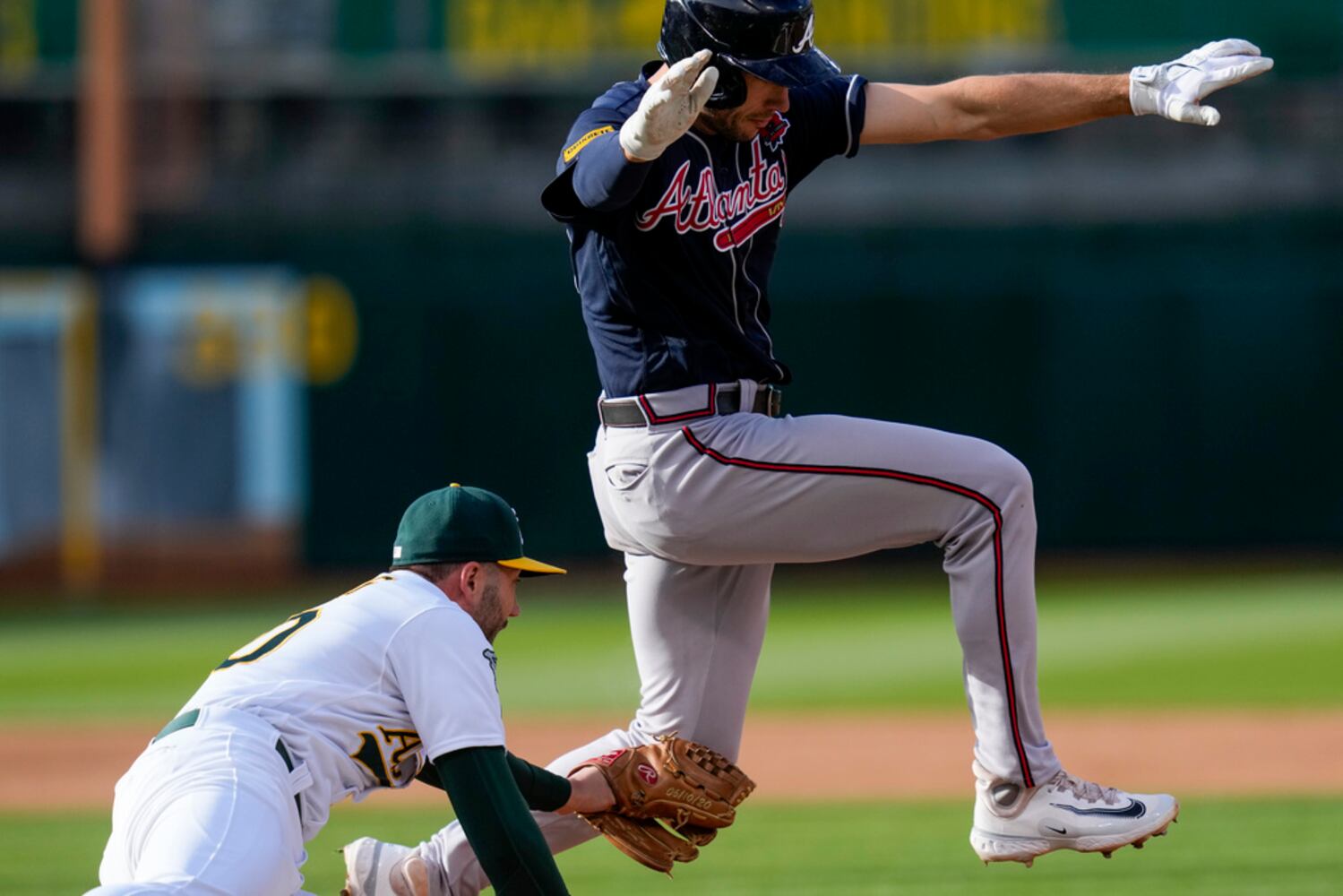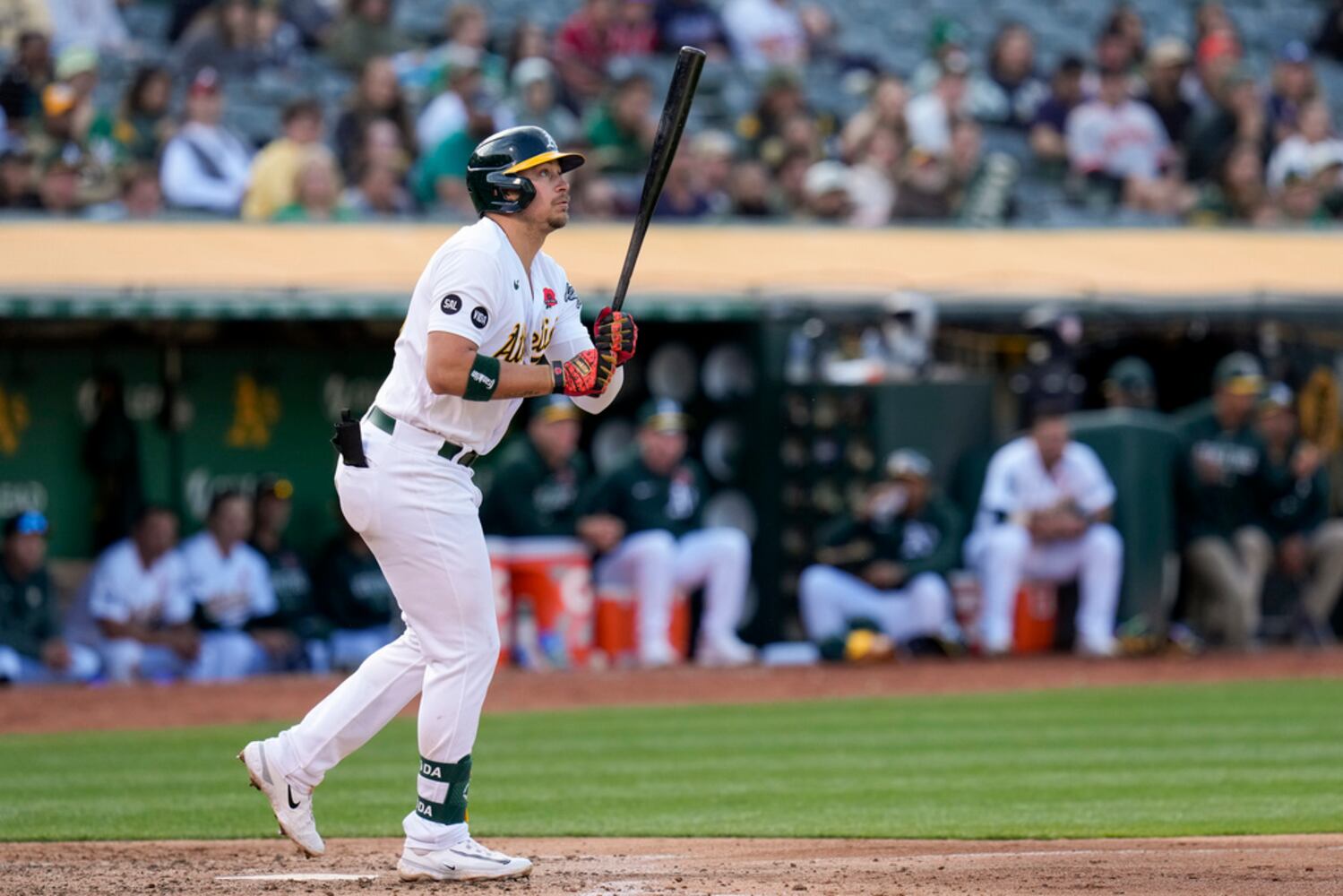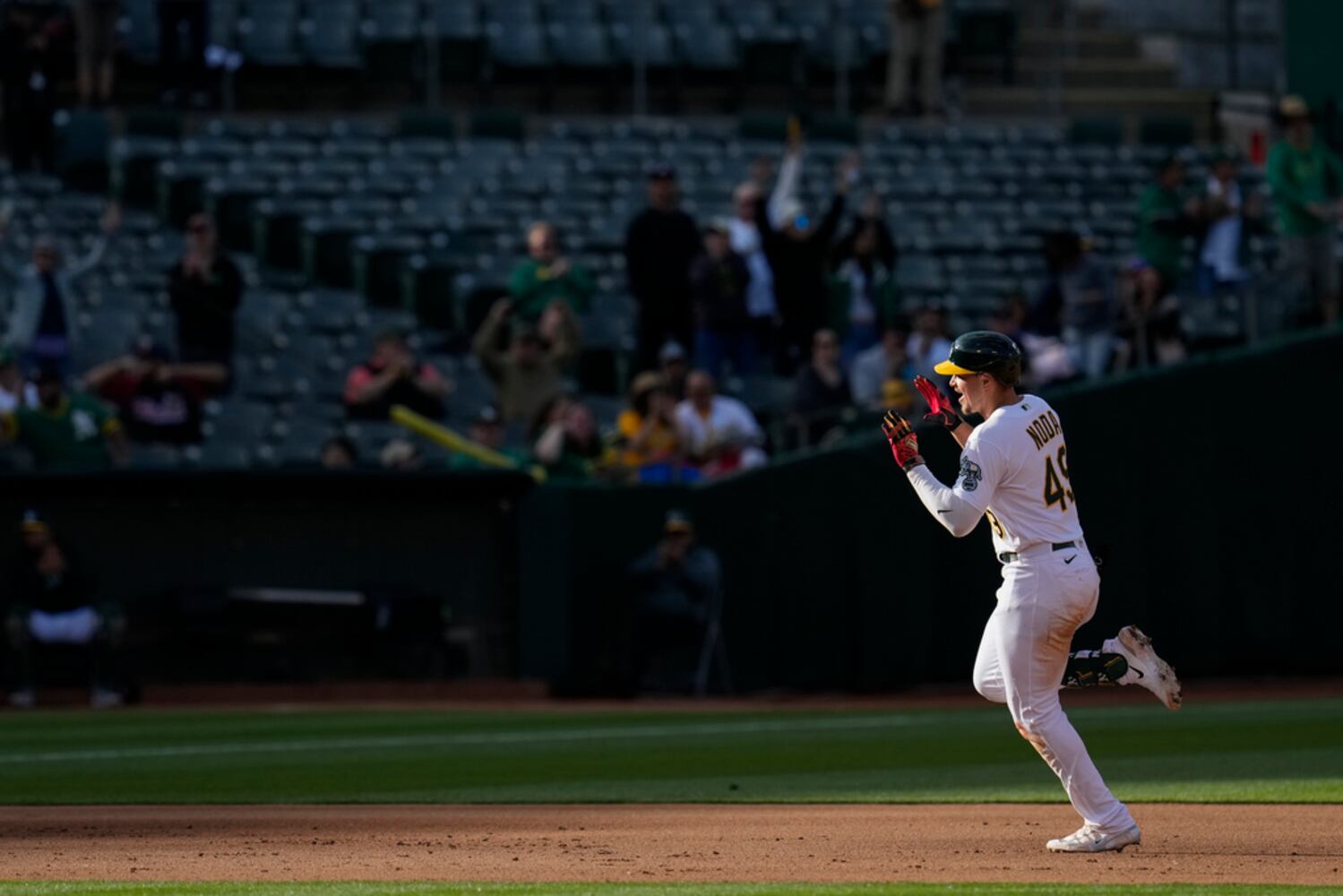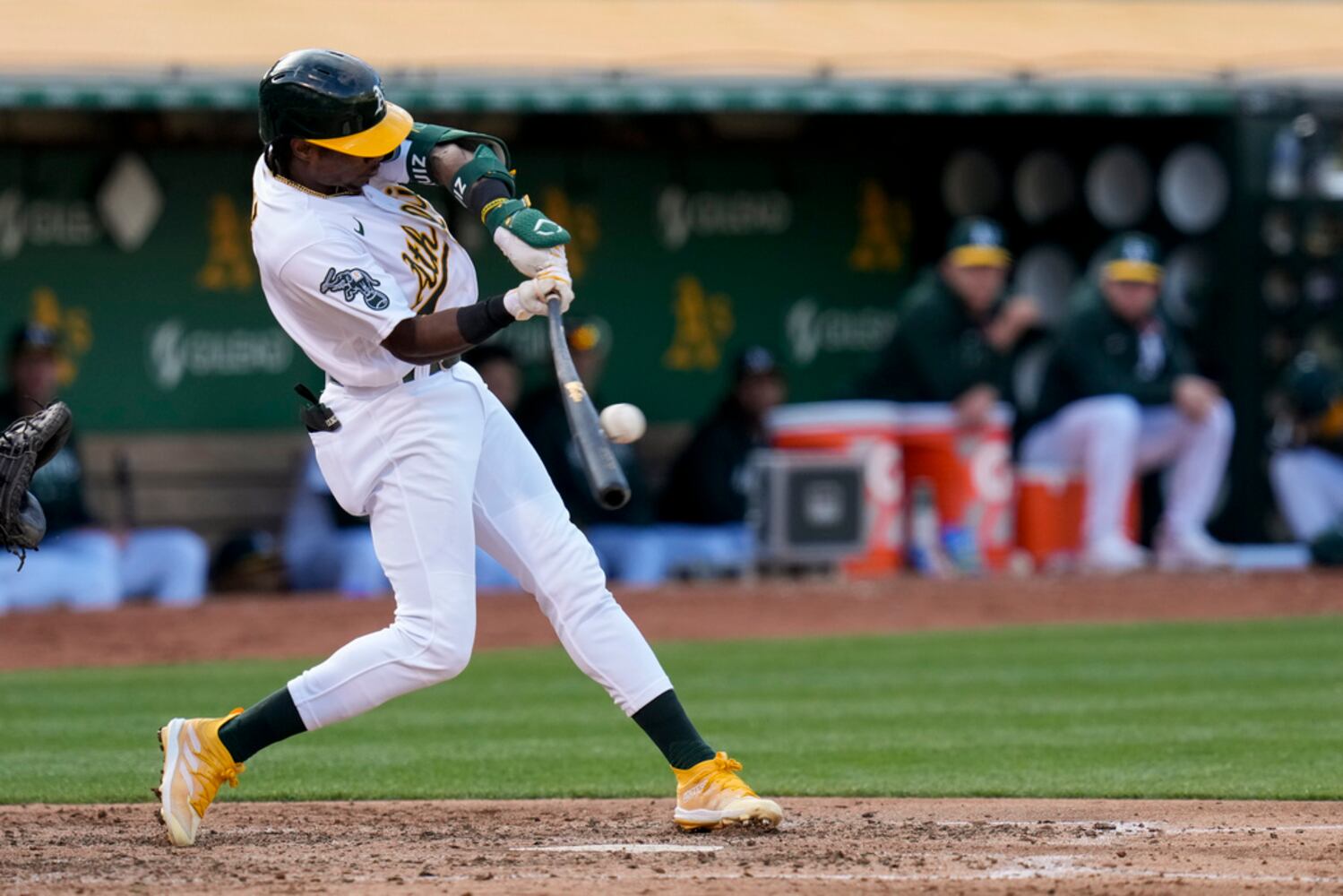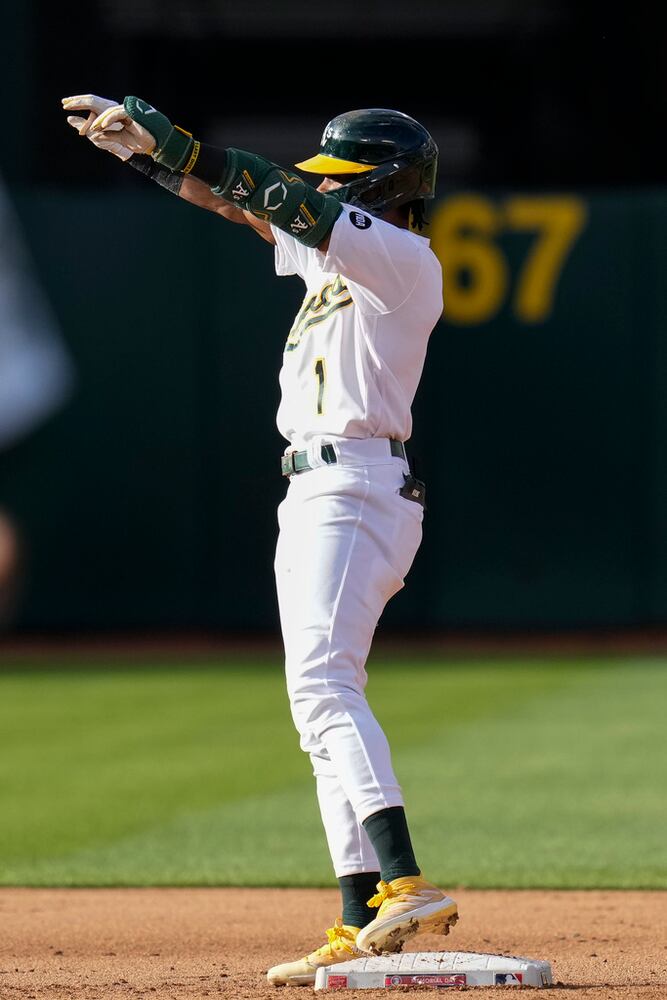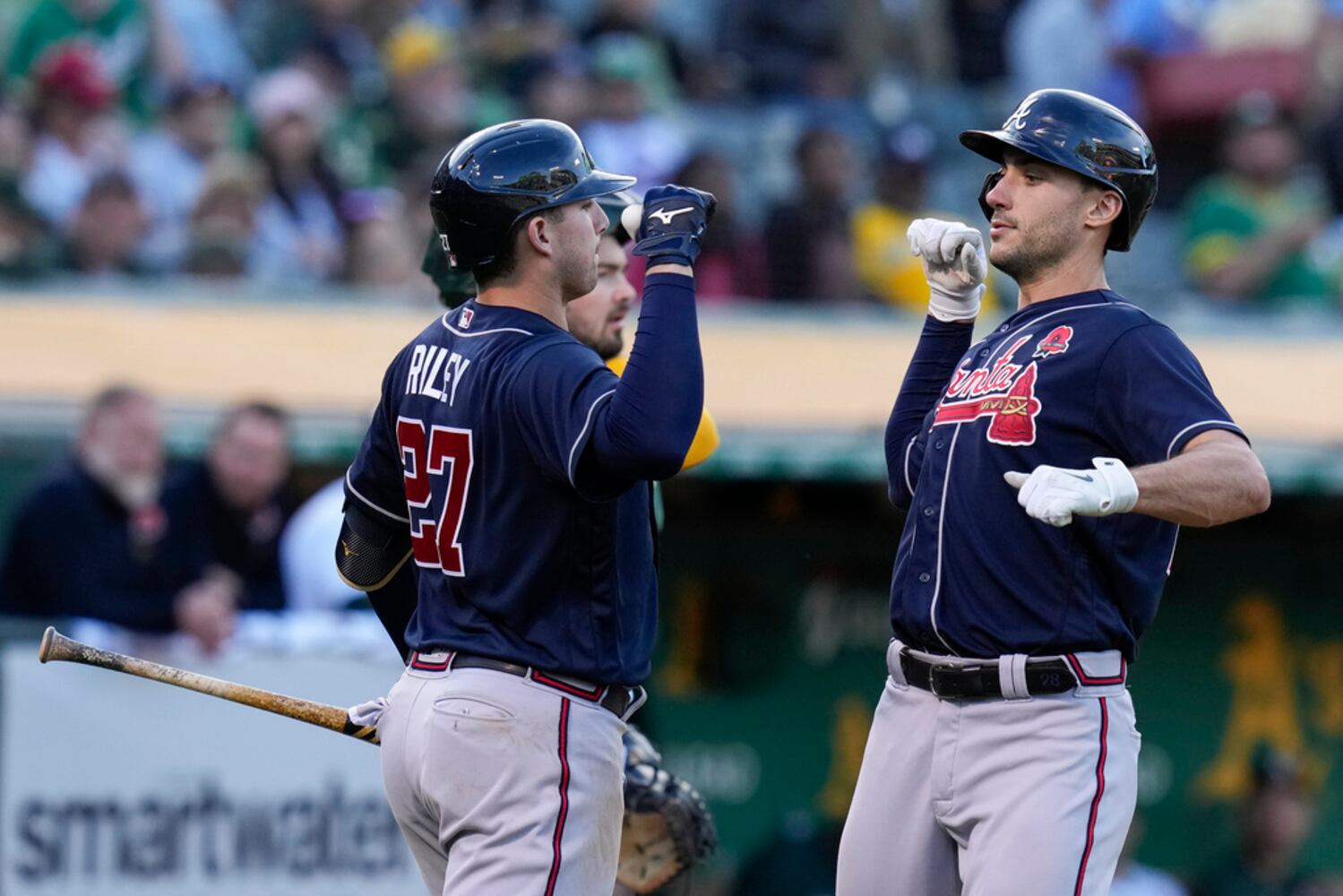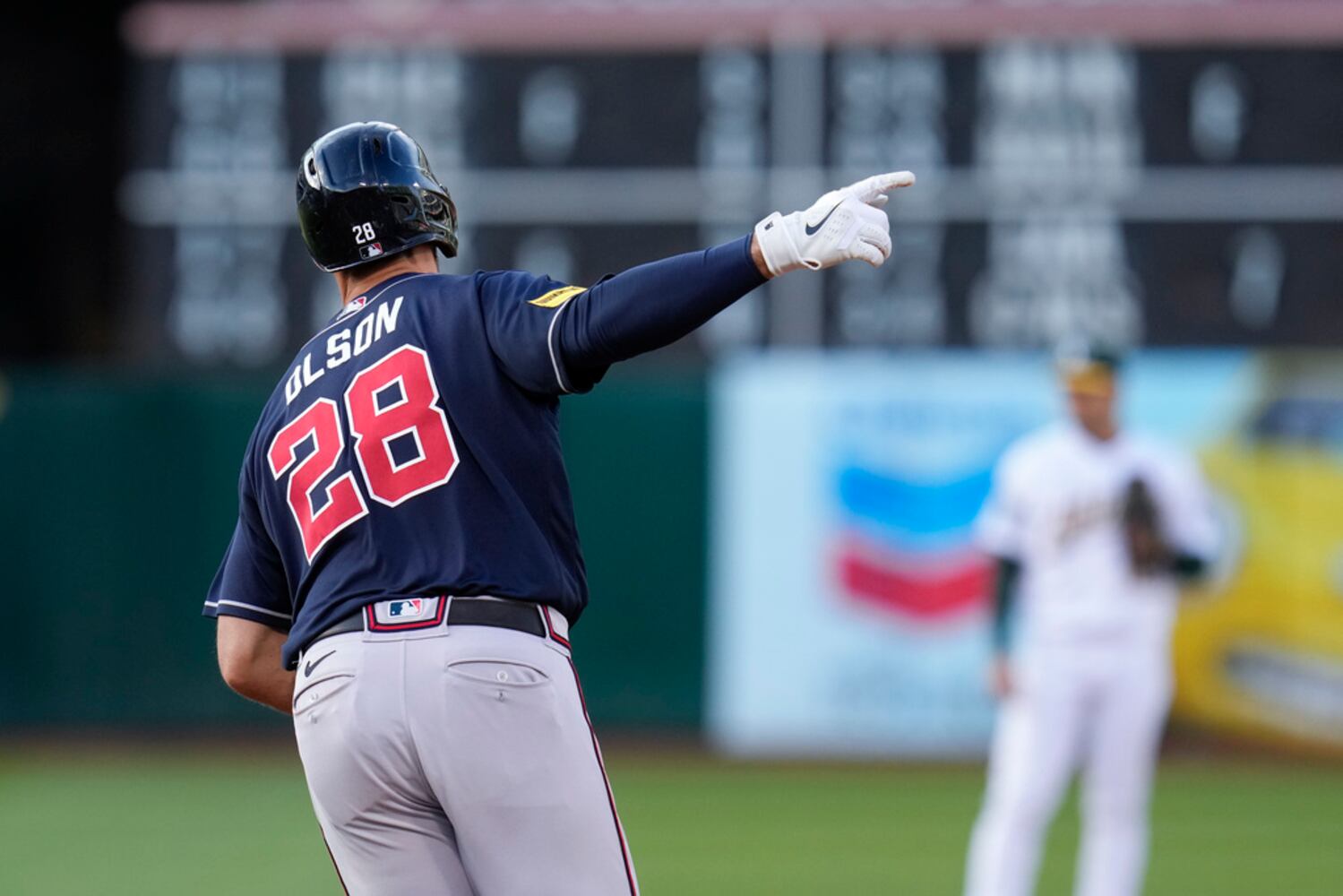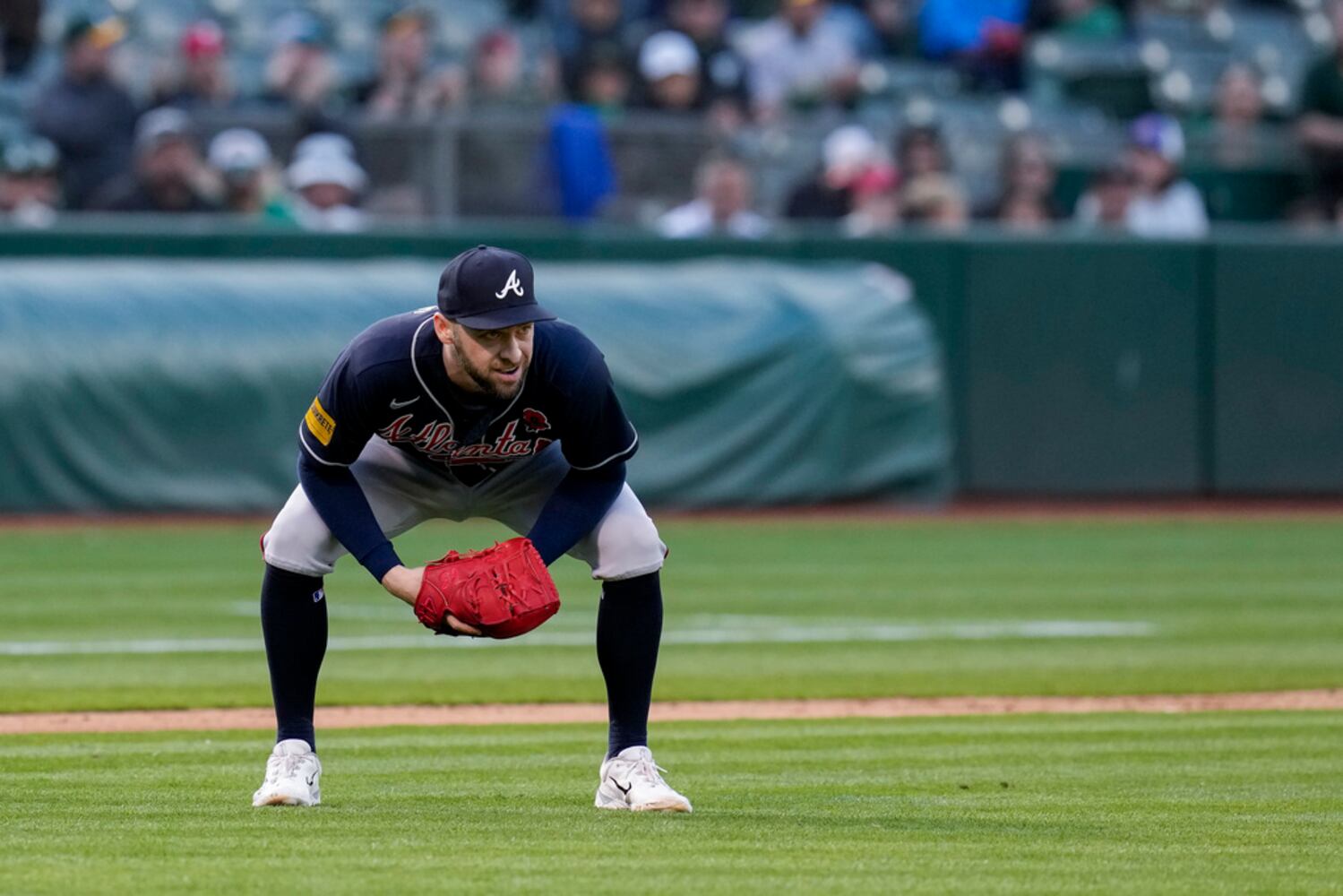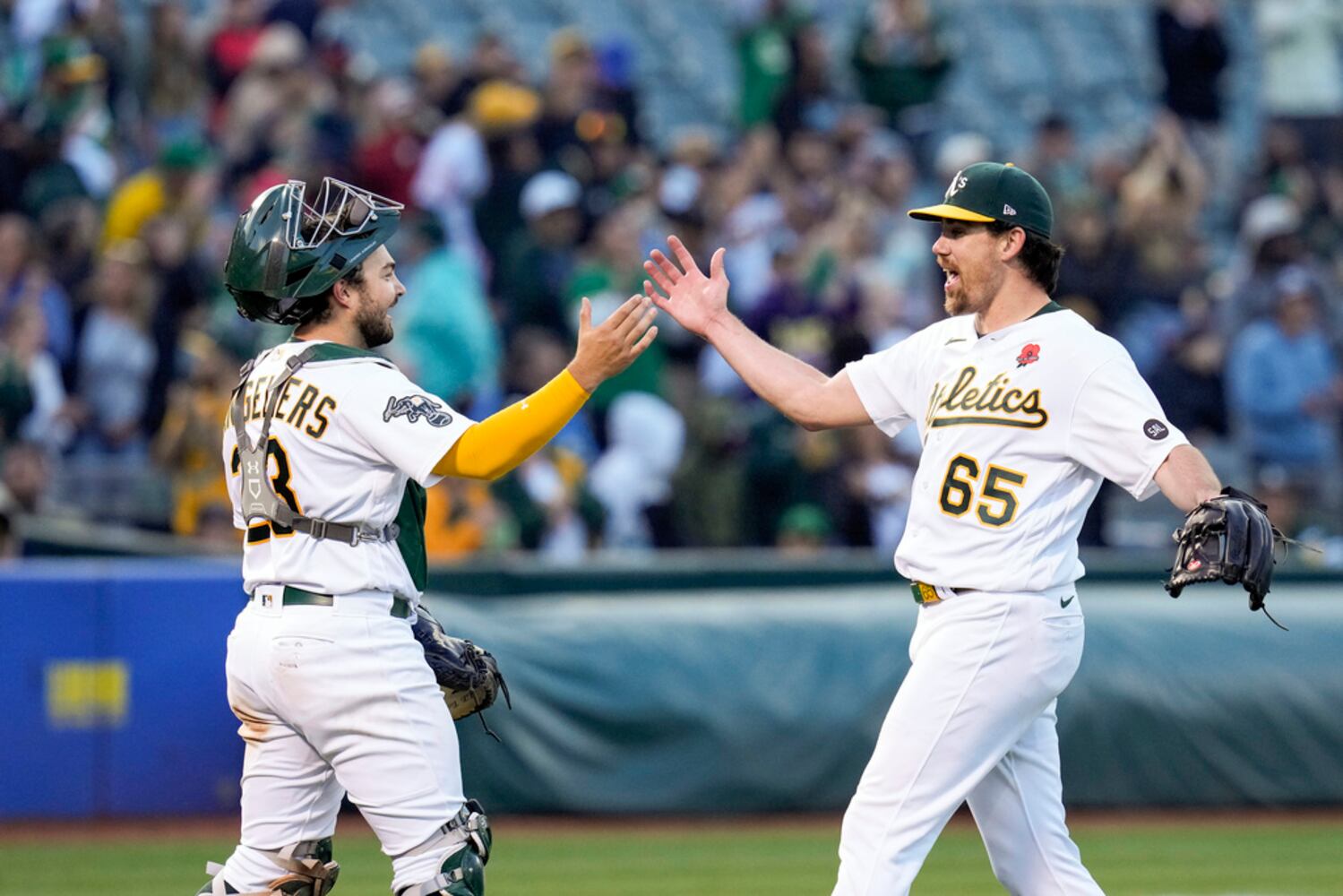OAKLAND, Calif. — On Monday morning at the Braves’ hotel in San Francisco, Michael Soroka walked into the breakfast room, where his teammates greeted him with excitement. They went up to him and hugged him, almost as if this were a second MLB debut.
Just like the rest of us, Soroka’s teammates knew days ago that he would likely return to the majors – after almost three years – in Oakland. The news became official over the weekend.
Seeing Soroka at breakfast made it even more real.
Here he was, with 1,029 days separating his last start – Aug. 3, 2020 – and Monday.
“It was good to see him back,” A.J. Minter said. “Just to see him smile.”
“He was all smiles in there, too,” Travis d’Arnaud said. “Everybody was happy to see him – laughs, smiles.”
This day is everything Soroka, the Braves and fans waited for all along. Two Achilles tendon tears and three surgeries later, Soroka on Monday returned to a major-league mound. He allowed four runs over six innings – all four scored in the fifth inning – as the Braves lost 7-2.
On this day, it felt like results didn’t matter much. Yes, this is a business, and it is cruel. Yes, the Braves are a win-now team trying to position themselves for another World Series run. But this story is about so much more.
Soroka’s remarkable story is one of perseverance and determination, of work ethic and drive, of goals and dreams.
His return was, in a way, a celebration.
“It’s truly a special day for him,” Minter said before the game. “It’s just kind of a milestone. Yes, he’s already been in the big leagues. But just to go out there – it’s been 1,000-something days. Just going through the psychological thing, man, that’s gotta be more difficult than anything.”
“A ton of adversity and struggles,” Kyle Wright, back in Atlanta rehabbing, said by phone. “His ability to just stay the course and continue to stick it out and ride it out has been truly impressive.”
“I’m sure everybody in the league is excited, just as much as everybody in this clubhouse is,” d’Arnaud said.
Here’s the funny part about all of this: We all marvel at Soroka’s incredible grit and positive attitude in overcoming these obstacles. This seems like the perfect time to shower him with praise for making it back despite unbelievably unlucky circumstances.
Except the man in the middle of it all – Soroka – wants only to close this chapter. He’s not interested in this big comeback storyline. “It’s been a whirlwind,” he said after Monday’s start, “and I’m kind of excited to put that storyline behind us now and keep putting up zeroes.”
OK fine, but one final question about all of this.
On the difficult or frustrating days, what kept Soroka going?
“Today, was a big one,” he said. “A day like today and the people that believed in me. I’ve always said I was gonna be back here for the people that believed in me, not the ones that said I couldn’t. Those people are my dad, training staff – here (with the Braves) and a group I work with in Arizona – and a lot of people that have helped me along the way. There’s been some people in my corner for a long, long time that have stuck by me, and it’s a day for them, too. Those were the people that kept me going and kept me to this day right here.”
Credit: AP
Credit: AP
Even if Soroka wants to look forward – which is understandable – it’s difficult not to find his journey inspiring. He tore his Achilles tendon twice in the span of a year. He needed three surgeries to repair it. He came back last year and made a handful of rehab starts before the Braves shut him down because of shoulder soreness.
And he’s still 25 years old.
“I think being his teammate, it’s like you’re frustrated with him, almost,” Wright said. “But he just has tremendous work ethic. So it’s not a surprise that he’s back in this position, given all of the circumstances that have gone against him. As teammates, we couldn’t be happier for him.”
Minter recalled his time going through Tommy John surgery rehab. His elbow healed, but he had questions. The main one: Could he still be the same pitcher?
And this, he said, is a complex part about injuries. They are physical in nature, but can be so, so mental. This makes Soroka’s climb back to the majors impressive.
“It’s one of those things where it’s such a freak accident, out of your control,” Minter said of the Achilles tendon tears. “There’s really no word to describe it other than, it’s more psychological than anything, more than physical. Yes, he obviously had a physical injury, but just the psychological part has to be just bearing on you for so long.”
Credit: Curtis Compton
Credit: Curtis Compton
Then there’s this unimaginably unfortunate luck: In 2021, Soroka tore his surgically repaired right Achilles tendon walking into the home clubhouse. “It’s a gut check, really,” Wright said. “You don’t expect something like that to actually happen until it does. And you just can’t help but feel horrible for Mike.” But Soroka kept going. He never quit.
“These guys are driven,” Braves manager Brian Snitker said before Monday’s game. “I don’t know that anybody that young is going to cash it in. I mean, he’s only 25, he wasn’t gonna stop. He knows what he has in front of him, and he still has a lot of time to have a really nice career. But it’s not easy to do that, I know that.”
Soroka always stayed positive. In an interview with The Atlanta Journal-Constitution in spring training last year, Soroka emphasized the positives from his situation. And he actually listed these silver linings from a terribly unfortunate situation that derailed the start of a promising career.
For one, he said, this could’ve happened in the minors, when he wouldn’t have been accruing service time while rehabbing. It could’ve occurred in college, before he even reached professional baseball. And because it happened when it did, he’ll save miles on his arm.
This is who he is.
“He always finds the good in everything, and he’s always pumping people up,” d’Arnaud said.
After Monday’s start, Soroka fielded questions for around eight minutes. He discussed his stuff, the rough fifth inning and the emotions of the day. Most of what he said centered on pitching and this game – not on the comeback story he wants to leave behind.
So, in a way, his return to the big-league mound perhaps represented him moving into a new chapter.
“I think last year was the first step to that, and obviously this is the bigger one,” Soroka said. “We can think of it as this big story, and I prefer to just think of it as a bump in the road. Hopefully we’re looking back on this in a long, long time and we forget that, and this feels like a long time ago as well.”
Of course, everything will soon boil down to this: Can Soroka be his pre-injury self? Will he ever get back to that form?
When he broke into the majors, he became one of the top starting pitchers in baseball. Then the injuries occurred.
Credit: Curtis Compton / Curtis.Compton@
Credit: Curtis Compton / Curtis.Compton@
Can he be elite again?
“Yeah, 100 percent,” Wright said. “I think if you’re that guy once, you can definitely be that guy again. Knowing Mike, knowing his work ethic and his ability that he has, I don’t think there was ever a doubt that he would be back. I think he can be back to who he was. The person he is and the work ethic he has, I think he can be better. It may not happen right away, but I think we have a ton of faith in Mike, and I’m really excited to just watch how he continues to grow and develop this time around.”
Perhaps future athletes will see Soroka as an inspiring story that provides them with hope. “You get hurt and that can be the name everybody brings up like, ‘Hey, you’ll be OK, you’re gonna be good, everything’s gonna turn out just fine, just keep trusting the process and keep going,’” d’Arnaud said. In that way, Soroka could be an example for many.
But first, he has a career to drive forward.
He officially is back in the majors. No one knows for how long, or how successful he’ll be going forward.
But those who know him best always believed this day would come.
“There was never a doubt, in my opinion,” Wright said.
About the Author
Keep Reading
The Latest
Featured

